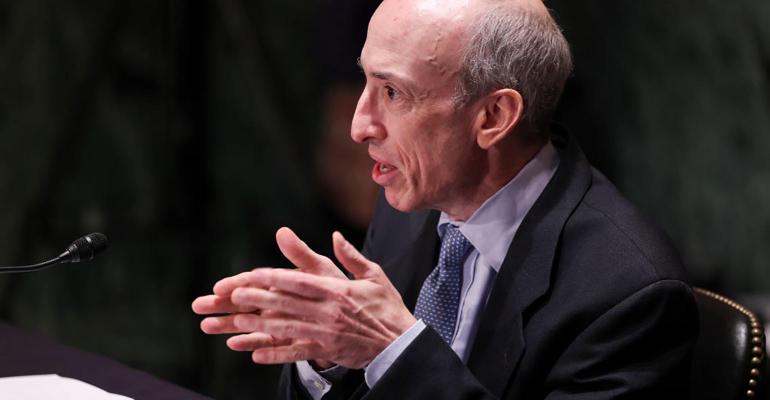(Bloomberg) -- The U.S. Securities and Exchange Commission is taking steps to reverse controversial regulations passed last year that put new restrictions on proxy advisory firms.
The proposed overhaul would strip business groups including the U.S. Chamber of Commerce of a policy win. Executives cheered GOP-backed changes approved in July 2020 that restricted firms such as Institutional Shareholder Services Inc. and Glass Lewis & Co. Critics argued the tweaks would have made it harder for investors to press for changes in corporate strategy.
The SEC’s new plan, proposed under Chair Gary Gensler, a Democrat, would scrap added requirements that Republicans say were needed to crack down on conflicts of interest. Gensler, who was joined by the agency’s two other Democrats in voting to put the proposal out for comment on Wednesday, said in a statement that “investors have expressed concerns that such conditions, as written, would impair the independence and timeliness of proxy voting advice.”
Activist investors such as Carl Icahn also opposed the changes put in place last year, arguing they made it harder for shareholders to hold companies accountable for poor performance.
Read More: Companies Get Win Over Activists in SEC Proxy Adviser Crackdown
Elad Roisman, a Republican commissioner at the SEC who played a key role in putting together the Trump administration-era rules, said it was inappropriate to reverse course a year after the regulations passed. He also said the agency’s new plan could lead to a “carve out” from legal liability for proxy firms.
“The proposal’s rationale is not so well-supported and the process through which it was developed raises questions about its thoroughness,” Roisman said in prepared remarks. Hester Peirce, the other GOP commissioner at the SEC, also opposed the plan.
The SEC’s new proposal would:
- Scrap controversial requirements that proxy advisory firms share their recommendations with corporate executives at the same time as shareholders
- Remove language about consequences for not disclosing certain information around proxy voting advice that critics say would have made advisers targets for lawsuits
- Provide a 30-day period for the public to comment
Also on Wednesday, the SEC voted 4-1 to force companies to include candidates backed by shareholders -- as well as those backed by management -- on the same proxy voting card for contested elections.





